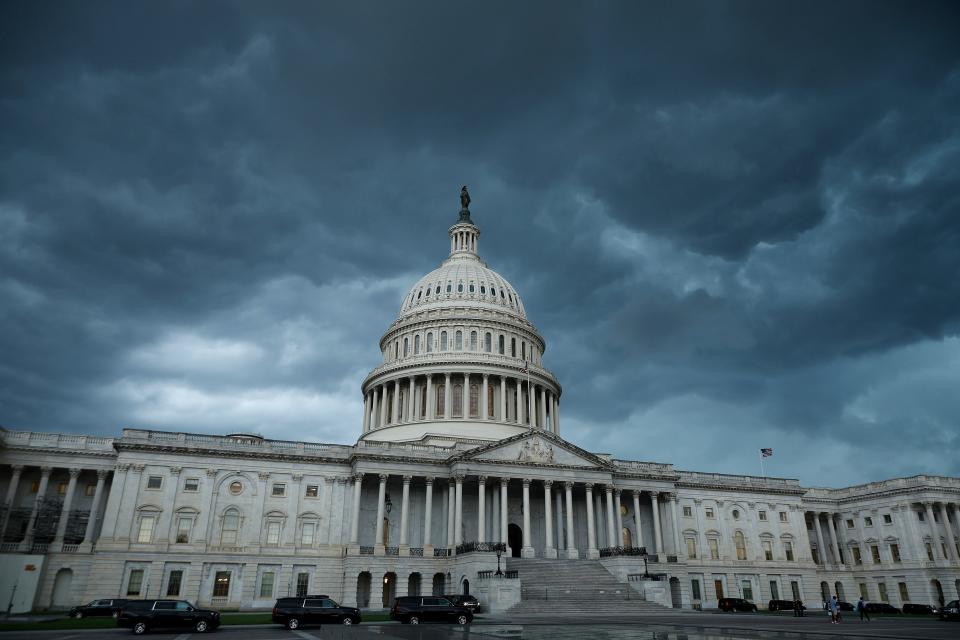The debt ceiling fallout isn't over for markets as corporate earnings will take a hit amid efforts to rein in government spending, investment manager says

The fallout from the debt ceiling crisis isn't over, Glenmede said in a note on Monday.
Forthcoming government spending cuts will crimp GDP and act as a headwind to corporate profits.
That will put more pressure on weak corporate earnings, the investment manager warned.
The fallout from the debt ceiling crisis isn't over yet, as corporate earnings will soon take a hit amid efforts to rein in the government's budget, according to Glenmede.
Though the US averted a default after President Joe Biden signed the Fiscal Responsibility Act over the weekend, markets aren't necessarily in the clear yet because the debt deal incorporates major cuts to spending, the investment manager said.
"The Fiscal Responsibility Act may be just the first among several acts of austerity aimed at combatting a growing budget deficit. Historically, when US debt servicing costs reach 14% of revenues, a prolonged period of austerity follows as policy makers attempt ot rein in government spending," the investment manager said in a note on Monday. "As a result, additional acts of austerity, which would likely be a headwind to the economy and profits, are on the table."
In sum, government deficits would slashed by around $1.5 trillion over the next decade, the Congressional Budget Office estimated.
That will likely put corporate profits under pressure, Glenmede said, in addition to the strain already seen by higher interest rates in the economy. High rates have raised the cost of borrowing for firms and threaten to overtighten the economy into a recession, with Glenmede predicting the US will fall into a downturn later this year.
Those pressures are already reflected in corporate earnings weakness: S&P 500 companies saw a 2% earnings decline over the first quarter of 2023, with a 6%-7% earnings decline anticipated for the current quarter.
Other Wall Street analysts have also sounded the alarm on a corporate earnings recession as financial conditions continue to tighten. Morgan Stanley predicted a drop in corporate earnings of up to 16% this year, which could drag the S&P 500 down 9% to 3,900.
Read the original article on Business Insider

 Yahoo Sports
Yahoo Sports 